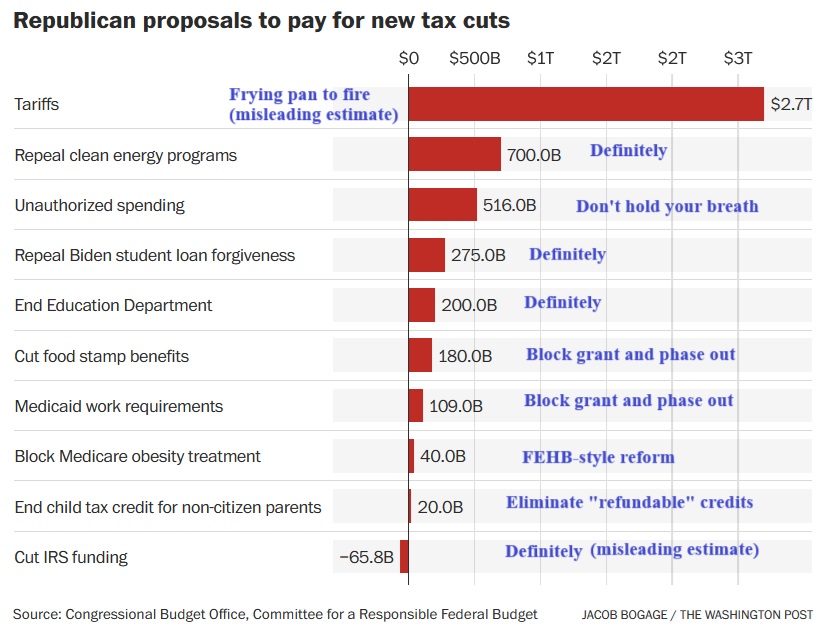As part of yesterday’s column about potential “offsets” for Trump’s tax agenda, I wrote “Don’t hold your breath” next to the line that stated taxpayers could save more than $500 billion if Congress refuses to spend any money on unauthorized programs.
My skepticism does not mean disagreement.
After all, if Congress is too incompetent to reauthorize the programs (normally a pro-forma step), why not use that as an excuse to stop funding?
The problem is that I don’t think either Trump or congressional Republicans actually have the principles or the courage to actually turn off the spigot for these programs (which are listed in Table 3 of this document from the Congressional Budget Office).
But perhaps I’m being too pessimistic about the potential for progress.
In a column for the Wall Street Journal, Warren Peterson, the president of the Arizona State Senate, recommends that Washington adopt his state’s rule for program authorizations.
Here are some excerpts.
Mr. Trump should also consider pushing for a federal law that has been effective at the state level. Every federal agency should be subject to a periodic sunset review requiring affirmative congressional reauthorization for the agency to continue in existence. …Enacting a sunset law would put in place a process to prevent bureaucratic backsliding… It will also make the agencies more accountable to voters through their elected representatives. …Since 1978, Arizona has had a sunset law, which was signed by Democratic Gov. Bruce Babbitt. To combat the sins of government complacency, Arizona law requires the automatic expiration of all state agencies in 10 years or less, unless continued by the Legislature. In recent years, lawmakers have generally renewed agencies for eight years. During an agency’s “sunset review process,” the Legislature’s independent auditor identifies inefficiencies, exposes fraud or abuse, quantifies costs imposed on consumers, and analyzes the continued need for the agency. …Other states such as California, Colorado, Connecticut, Delaware, Idaho and Texas, have similar laws.
This sounds good, but I have two cautionary observations.
- First, I notice that Senator Peterson did not provide a list of programs that were eliminated as a result of the rule. I suspect and fear that he didn’t provide a list because nothing would be on it. Or at least nothing major.
- Second, California and Connecticut are two of the most- profligate states in the nation. That doesn’t mean a reauthorization rule should be blamed for their bad fiscal policy, but it does suggest that the rule is not very helpful.
I’ll close by saying that it’s good news that people are complaining about unauthorized spending. And I hope Elon Musk’s unofficial Department of Government Efficiency gets people angry about the way Washington wastes our money.
But don’t count on Republicans to eliminate unauthorized programs as part of this year’s tax bill.
P.S. I’m focused on real results, not feel-good policies. It’s why I favor a spending cap over a balanced-budget requirement.



